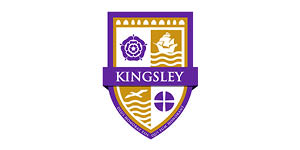VISAs
If you are travelling to the UK to study from outside of the European Union you will need to apply for a VISA.
If you 18 or over, applying for a study period of 11 months or less and your course is an English Language course, then you can apply for a short term study VISA. You can also apply for a short term study VISA if you are 18 or over and your course lasts for 6 months or less.
For longer study periods you will need to apply for a TIER 4 VISA.
If you are coming to study in the UK and are under 18, you will need to apply for a TIER 4 Child Visa.
You can apply for a Visa once a CAS (Certificate of Acceptance for Studies) has been produced by your selected School or University, up to 6 months before you travel to the UK, new regulations have come into force in October 2020.
Visa’s usually take 3 weeks to be approved, but it is best to start the process as soon as your CAS has been produced and it is always advisable to get all relevant financial and personal information together as soon as possible, ideally before you start the Visa application process itself.
This link will allow to access all the relevant government information about applying for a Tier 4 VISA
For more student focused information about the VISA application process, please do also visit the UKCISA site. It offers lots of helpful and practical advice about the VISA application process and the information on the site is kept fully up to date at all times.
For information about a Tier 4 Child Visa, please visit here .
Also, for more information about the English Language level needed to apply for a Tier 4 VISA, please do visit our Guide to English Language exams.
BOARDING SCHOOL APPLICATIONS
Applications to schools-we suggest applying to 3 selected schools-the usual cost to register with each school is between £100-£200.
Entrance exams-all schools will expect your child to sit entrance exams, usually in English, Maths and verbal reasoning too, so 3 tests per school, plus sometimes a Skype interview too.
School offers-subject to success in the exams, each school will then confirm if a place has been offered to your child.
Decision time-you will select a school and a deposit payment will then be due to secure a place at the school. The deposit payment is usually equivalent to 1 term’s Boarding fees- @£10,000.
Guardianship-it is highly recommended that a guardian is then appointed to look after your child in the UK, if your child is aged 18 or under, unless you are planning to come over to live with your child in the UK for the duration of the study period.
Confirmation of Acceptance for Studies (CAS) document is then produced by the school. This document is needed to support any Visa application. A Tier 4 child Visa is needed for all children coming to study in the UK from outside the EU. There is an additional cost for the Visa & health care cover, allowing your child to access free health care whilst in the country, see above for details.
UNIVERSITY APPLICATIONS
All applications for undergraduate degree courses need to be sent via UCAS – The Universities and Colleges Admissions Service.
Deadlines for applications are as follows:
15 October at 18:00 (BST) for the universities of Oxford, Cambridge or most courses in medicine, veterinary medicine/science and dentistry.
15 January at 18:00 (GMT) for the majority of courses.
24 March at 18:00 (GMT) for some art and design courses.
30th June the final deadline for International applications from outside the EU.
There are 4 different types of application processes that UCAS offer:
– Undergraduate Courses
– Postgraduate Courses
– Teacher Training Courses
– Performing Arts Programmes Offered by a Conservatoire
All Undergraduate applications are sent via UCAS the University & Colleges Admissions System.
Our step by step approach to completing your UCAS form
Be clear on the course you want to study and use our site to see the costs associated with studying at each university and the accommodation costs too.
Take a virtual tour of the university or ideally, of course, visit the university if you can, read our profiles on the cities where the universities are situated, make sure they feel like the right fit for you, personally. You need to remember you will be both living and studying in these cities so consider all the things that you need to make you feel ‘at home’.
Now it’s time to start your application form. There are 3 main sections to the UCAS application form
– Education
– Personal
– Employment
Education
This section captures all your current qualifications and any qualifications you are expecting to pass in time to take up your place at a UK university. You will need to add the ‘centre’ (school/college) where you are currently studying to complete your qualifications. If the centre you are studying at is not listed on the site you can add the details manually by choosing the option, ‘my school is not listed’. Fill in all your qualifications and use the search box to find the correct level of qualification for each exam. If you don’t know the level of qualification you are sitting then there is an organisation called NARIC www.naric.org.uk that can help you with this. You will also need to know the awarding body for your qualifications i.e, the organisation is accrediting/approving your qualifications, if you don’t know you should contact your school or college to confirm.
Employment
In this section you add paid employment details. Any voluntary positions should be added to your Personal Statement. The section has room for 5 paid positions to be added. If you have more than 5, please select those most relevant to your studies.
Personal
Here you add all your personal details and this section is fairly easy to complete. This section requires full name as it appears on your passport. If you currently do not have a passport please do fill in the name you would add to a passport application, not a nickname. If you are coming to study in the UK from overseas you will also need to add the date when you expect to arrive in the UK, if you don’t know, add the 1st day of the month you expect to arrive.
Additionally, when completing your UCAS form you will need to supply a Reference and a Personal Statement. We provide guidelines here on what to add to your Personal Statement.
There are 3 ways to provide a Reference; a tutor/teacher from your current school, a teacher/tutor from a previous school or an employer. If you are currently at school or college a reference will be automatically completed for you and sent when your form is submitted. To get a reference from a previous school/college or employer you will need to contact the school or employer beforehand to get their contact details and, in the case of an employer establish if they are willing to complete a reference for you. A reference request will then be sent to the employer to complete online and this is then automatically added to your application form. In the case of a reference from a previous school/college you will need to get the UCAS buzzword for the insititution to add to your application form, this then also triggers a request to the school to complete a reference for you and you will be able to see online when a reference has been completed.
Once all the sections are completed and you have got your reference and completed your personal statement, you are ready to apply!
For postgraduate applications UCAS can be used, but most universities accept direct applications. There are approximately 20 colleges that use UCAs’s UKPASS postgraduate application process but there are only 2 colleges featured on this site that use this service – Aberystwyth and Dundee University.


